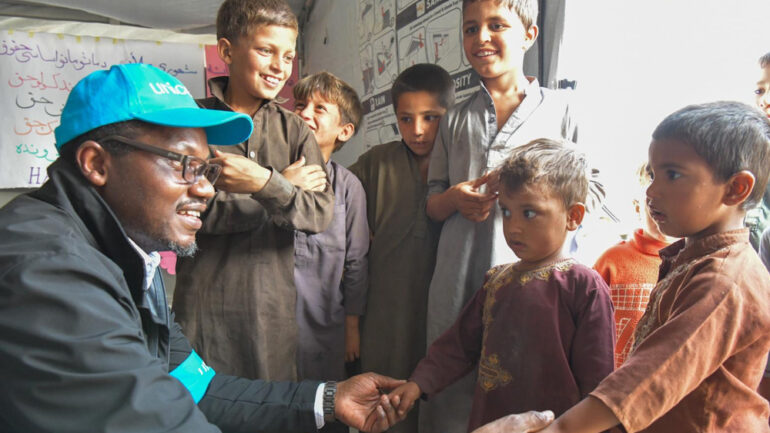RASC News Agency: Tajudeen Oyewale, Country Representative of the United Nations Children’s Fund (UNICEF) in Afghanistan, has announced that since September 2024, more than 600,000 Afghanistanis have been repatriated from Pakistan an overwhelming majority of whom are children. This large-scale forced return is occurring against the backdrop of a severe humanitarian crisis in Afghanistan, compounding existing vulnerabilities. In a recent post on the social platform X, Oyewale stated that among the returnees, at least 782 children were separated from their families. Fortunately, through UNICEF’s intervention, these children have now been successfully reunited with their families. He emphasized that this effort reflects UNICEF’s continued commitment to protecting the rights and wellbeing of children amid conflict and displacement.
Oyewale also reported on his recent visit to the Torkham border crossing, where he met with a number of recently expelled children. He described their condition as “extremely distressing,” underscoring the urgent need for immediate humanitarian support. Meanwhile, Pakistan’s enforcement of a new immigration policy continues to result in the mass expulsion of undocumented Afghanistani nationals. Hundreds are being forced to leave the country each day, many under harsh and degrading circumstances. The plight of the children many of whom are displaced, malnourished, or traumatized has triggered calls for emergency international intervention. In response to the growing crisis, Taliban officials have raised the issue with Pakistan’s Foreign Minister during his recent visit to Kabul, urging a phased and dignified repatriation process. They have also called for an end to the reported mistreatment of Afghanistani migrants. Nevertheless, thousands remain stranded at border checkpoints and makeshift camps, facing dire conditions and uncertain futures.
The situation poses immense pressure on Afghanistan’s already fragile healthcare and social infrastructure. Given that children represent the majority of those affected, the long-term socio-economic and psychological consequences are expected to be significant. UNICEF and other humanitarian agencies continue to appeal for global assistance to mitigate the impact of this unfolding crisis and to ensure the protection of vulnerable populations, particularly children, as Afghanistan grapples with compounding internal and external challenges.






